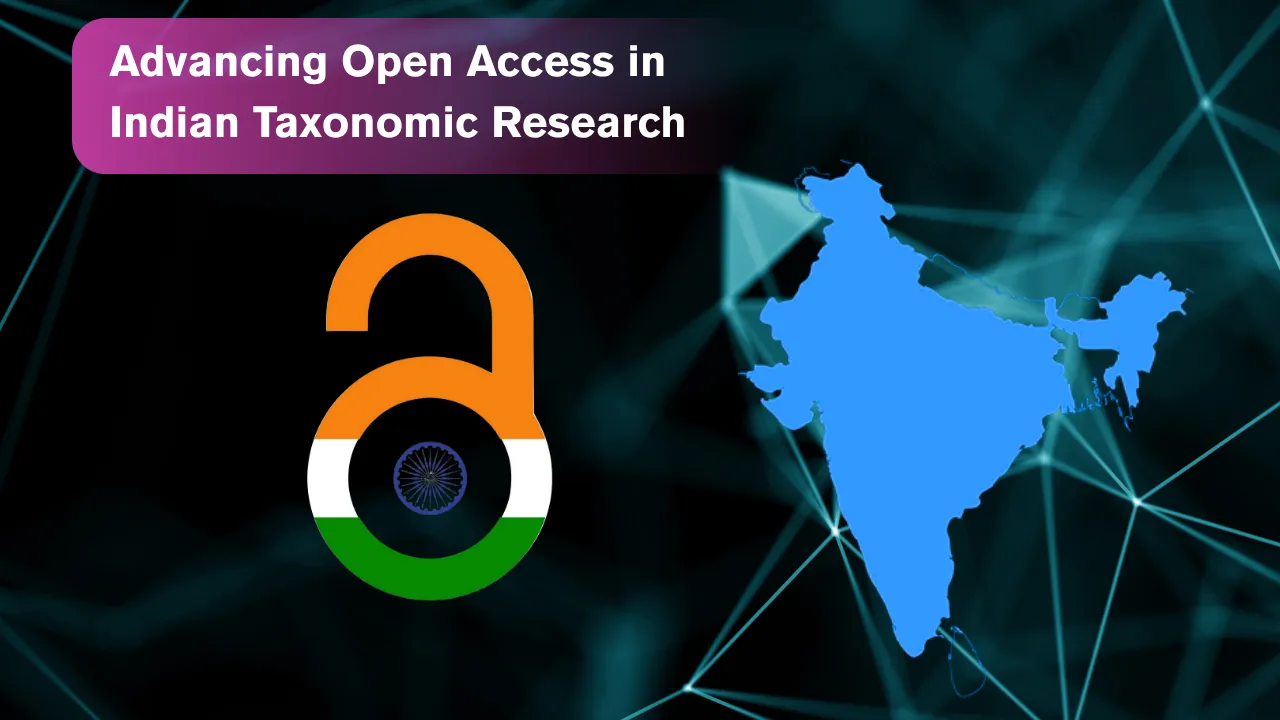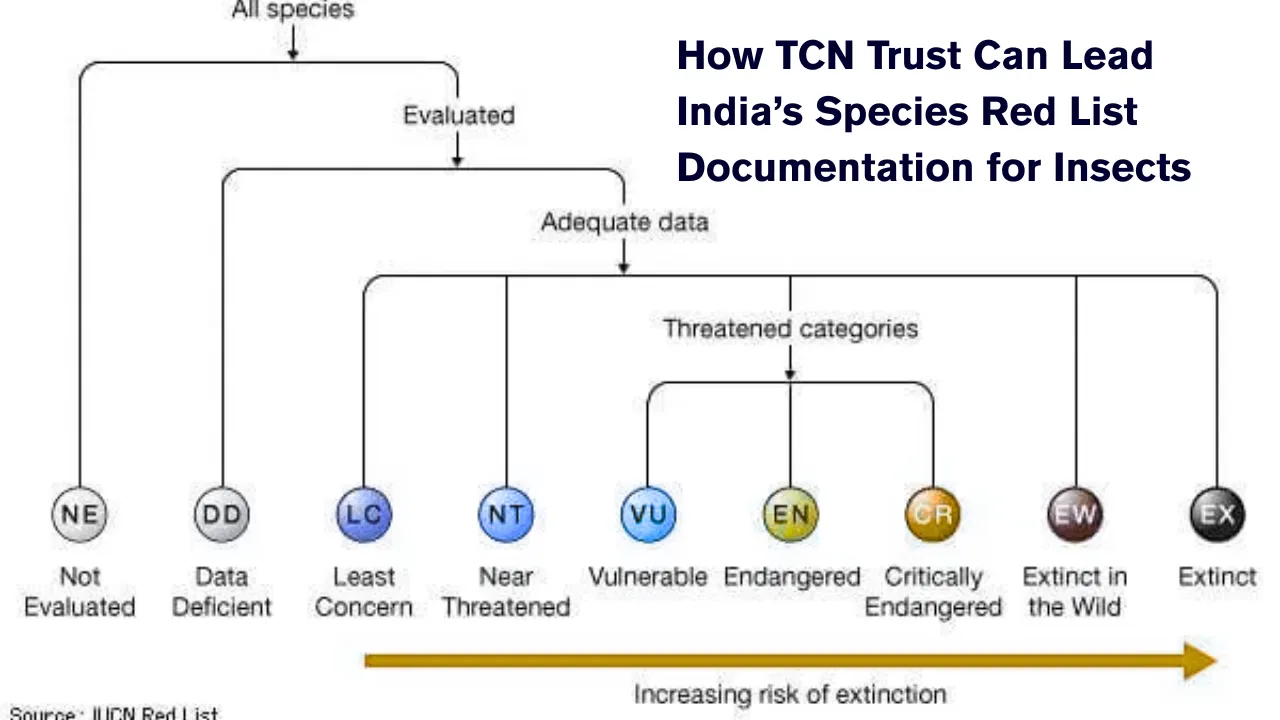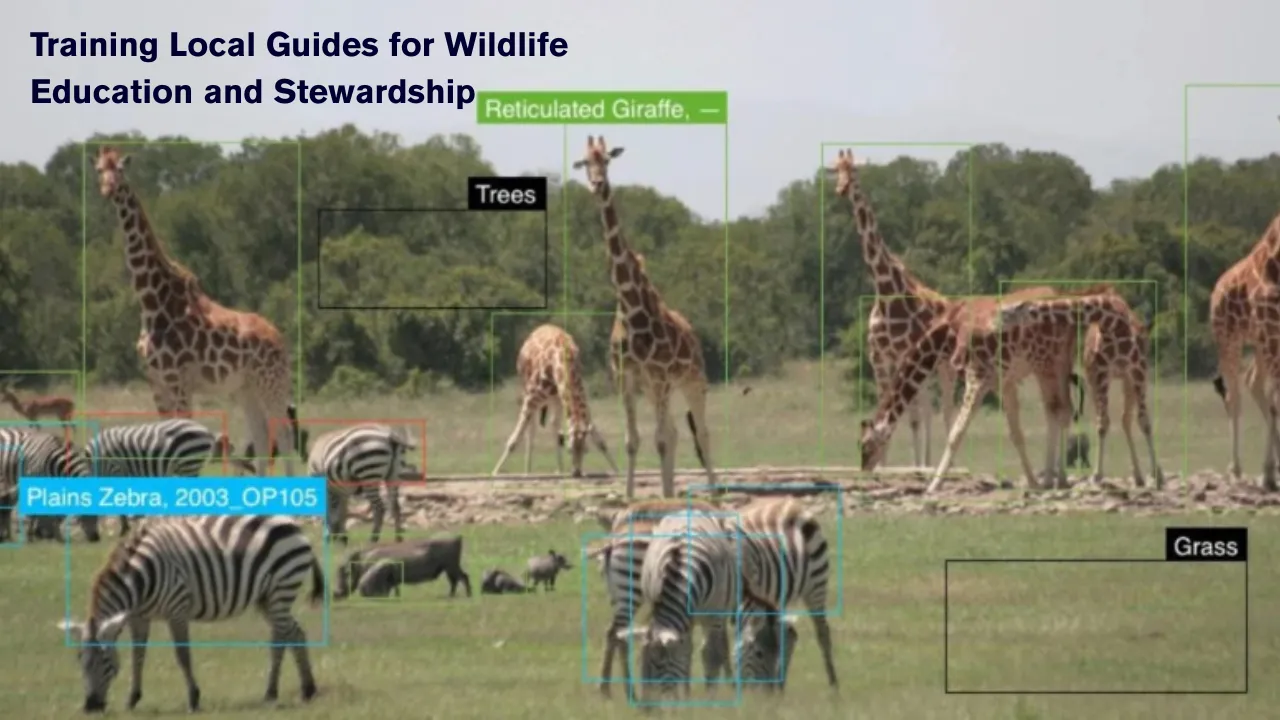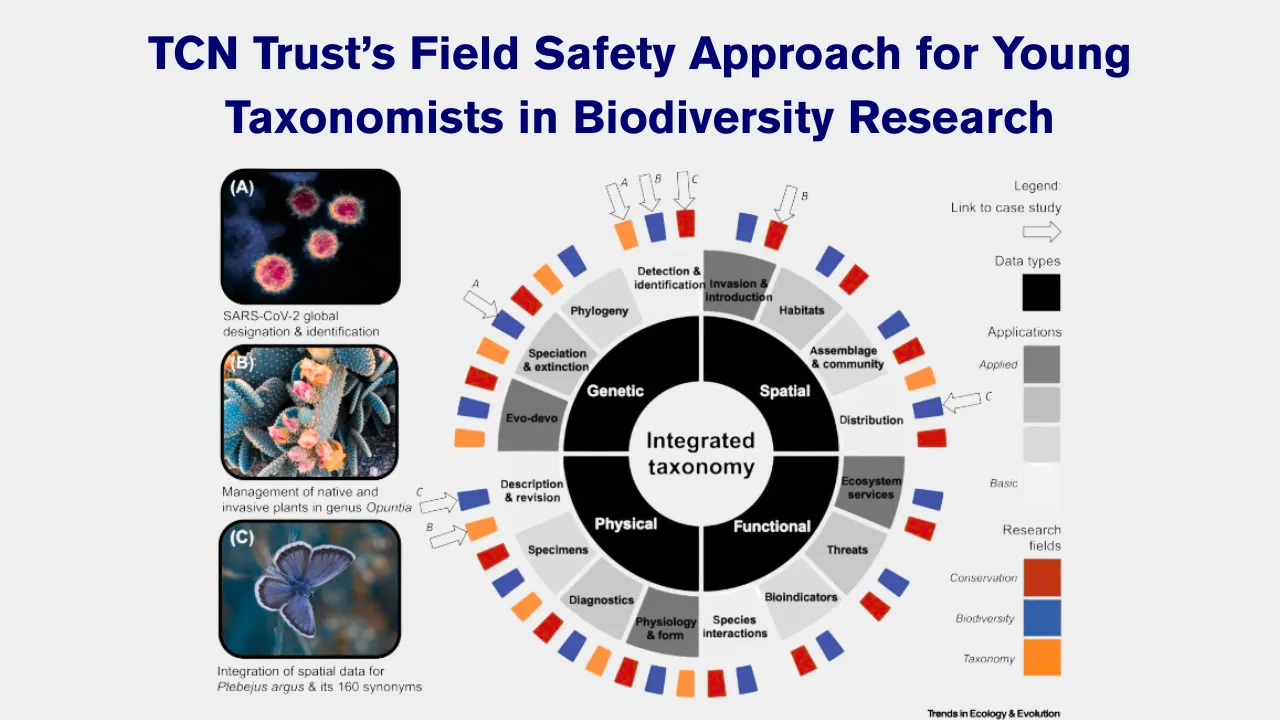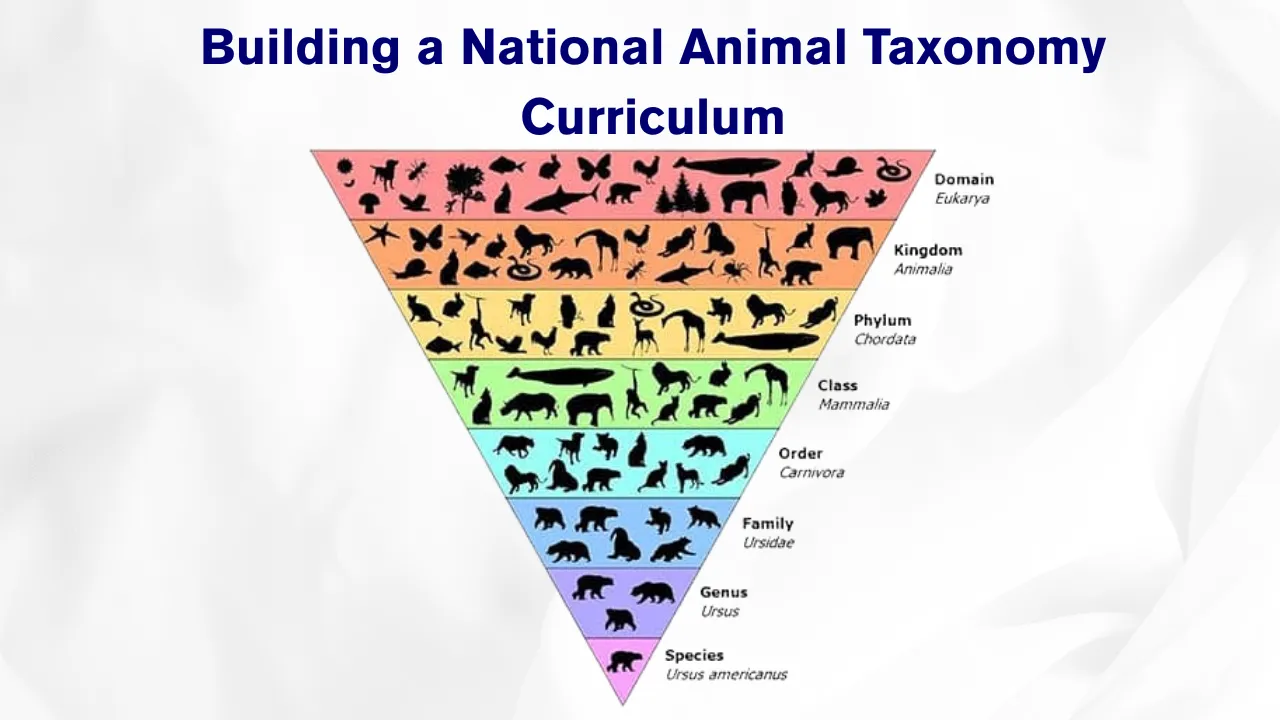Advancing Open Access in Indian Taxonomic Research: Open access in Indian taxonomic research is no longer just an academic aspiration—it is becoming a necessity for sustainable science and inclusive discovery. India’s rich biodiversity, spanning endemic species, unexplored ecosystems, and indigenous knowledge systems, has historically been documented in fragmented or inaccessible formats. Much of this information lies buried in institutional archives or behind paywalls, making collaboration and conservation difficult.
This article explores the pioneering role of TCN Trust in advocating for, enabling, and potentially expanding access to taxonomic knowledge in India. From digitizing historical literature to fostering collaborations, the Trust is championing a movement that prioritizes open science and democratized research. We dive into their initiatives, methods, and the broader implications for biodiversity research, education, and policy-making in India.
How Open Access in Indian Taxonomic Research Gains Momentum with TCN Trust
Open access in Indian taxonomic research helps remove the traditional barriers to scientific knowledge. With a mission rooted in transparency and outreach, TCN Trust is working to create pathways where taxonomy data and ecological records are freely available to all—from students and field biologists to conservationists and community stakeholders. By promoting digital repositories, curating open resources, and encouraging collaborative platforms, the Trust is helping shift taxonomic research from isolated efforts to collective, accessible action. This open-access push also aligns with global goals of biodiversity preservation and equitable scientific participation.
Overview of TCN Trust’s Open Access Approach
| Focus Area | Contributions |
| Digitization of Literature | Converting legacy taxonomic texts into searchable digital formats |
| Open Data Repositories | Building platforms for free sharing of taxonomic datasets |
| Capacity Building | Educating researchers on open-access publishing methods |
| Policy Advocacy | Supporting open science policies in biodiversity documentation |
| Community Science | Engaging citizen scientists in open taxonomy efforts |
The Role of TCN Trust in Open Science
TCN Trust is not just another institution engaged in taxonomy—it’s an active proponent of open science in the biodiversity space. Recognizing that biodiversity research must be shared to be impactful, the Trust prioritizes systems that ensure data can move freely between researchers, educators, policy-makers, and the public. Their work emphasizes transparency, collaboration, and reusability, all key values of open science.
Whether it’s promoting the use of open licensing, encouraging multilingual taxonomic resources, or simplifying data-sharing tools for researchers, TCN Trust consistently pushes for systems where science serves society without restrictions.
Digitizing Taxonomic Literature and Field Records
India’s history in taxonomy is deep and well-documented—but much of it remains in physical form, locked away in libraries or private collections. TCN Trust is addressing this challenge by initiating large-scale digitization efforts. These include:
- Scanning old monographs, species descriptions, and catalogues.
- Annotating documents with metadata for easy indexing.
- Creating open-access archives that can be used by researchers globally.
- Linking legacy data with modern classification systems.
This digitization not only preserves valuable content from being lost but also brings it into the digital age where it can be easily searched, cited, and reused.
Encouraging Open-Access Publishing in Taxonomy
Publishing in taxonomy has often been bound by paywalls and exclusive academic platforms. This slows down scientific progress, particularly in biodiversity-rich countries like India where field data is abundant but often under-published. TCN Trust advocates for shifting towards open-access journals and repositories where taxonomic information can be published without barriers to access.
Their work includes:
- Assisting researchers in choosing open-access journals.
- Supporting platforms that allow free upload of preprints and working papers.
- Promoting Creative Commons licenses that enable free sharing with proper attribution.
- Funding or co-sponsoring the publication costs for young taxonomists.
Through these efforts, they help ensure that the discoveries of Indian researchers are visible, usable, and shareable without institutional or financial limitations.
Collaboration with Biodiversity Portals and Institutions
Open access in Indian taxonomic research cannot thrive in isolation. Recognizing this, TCN Trust builds alliances with other institutions and biodiversity platforms. These collaborations help in scaling up digital access, standardizing taxonomy protocols, and integrating Indian data into global networks.
Partnerships may involve:
- Integrating with the India Biodiversity Portal for real-time species reporting.
- Sharing datasets with the Global Biodiversity Information Facility (GBIF).
- Coordinating with museums and herbaria to digitize specimen collections.
- Enabling multi-lingual taxonomy resources to reach non-English speaking communities.
These connections amplify the reach of Indian taxonomic work and embed it in international conservation efforts.
Key Ways TCN Trust Can Boost Open Access:
- Open Taxonomic Archives:
Hosting or curating publicly accessible databases for species information, images, field observations, and regional checklists. - Open Science Training Workshops:
Offering sessions on how to write, publish, and disseminate taxonomy work under open-access models and data-sharing standards.
Protecting Data Integrity While Promoting Openness
A common concern in sharing data openly is misuse or misattribution. TCN Trust addresses this by promoting robust data management protocols. Their focus lies in encouraging proper licensing (such as CC BY or CC0), metadata documentation, and citation tracking. This approach ensures that:
- Authors and data collectors are properly credited.
- Users of the data can trace it back to its source.
- Transparency is maintained even in collaborative environments.
This system builds trust among contributors and encourages more researchers to participate in open-sharing practices.
Why Open Access Matters for Biodiversity Conservation
The value of open access in Indian taxonomic research goes far beyond academic recognition. Conservation planning, species protection, and biodiversity laws rely heavily on access to accurate and up-to-date species data. When such data is locked behind institutional access or limited to printed reports, its value in real-world applications diminishes.
With open access:
- Field workers can identify species faster.
- Policymakers can act on emerging threats.
- Communities can engage in biodiversity monitoring.
- Teachers can bring real examples into classrooms.
TCN Trust, by enabling open access, helps bring taxonomic knowledge into the hands of those who need it most.
FAQs
What is the main goal of TCN Trust in taxonomy?
To make taxonomic research more accessible through digitization, data-sharing, and open publishing practices that support scientific collaboration.
Why is open access important in taxonomic research?
It allows taxonomic data to be used widely, encourages faster identification of species, and supports education and conservation initiatives.
How can researchers share their work openly through TCN Trust?
Researchers can publish in open-access platforms, contribute to digital repositories, and attend workshops organized by the Trust for guidance.
Does open access compromise research ownership?
No. With proper licensing and citation standards, researchers retain credit while allowing broader use of their data.
Can students or citizen scientists access TCN-supported databases?
Yes, the resources are intended to be public-facing and accessible to learners, enthusiasts, and professional scientists alike.
Conclusion
Open access in Indian taxonomic research is more than a trend—it is a foundation for inclusive science and effective conservation. TCN Trust is playing a crucial role in leading this transformation by focusing on digitization, accessibility, and collaboration. Their work ensures that India’s immense biodiversity knowledge reaches beyond academic circles, empowering communities, institutions, and future researchers alike.
As environmental challenges grow, the need for open, timely, and accurate biodiversity information becomes urgent. By supporting initiatives like those of TCN Trust, we all contribute to a richer, more informed understanding of the natural world—and a stronger foundation for its protection.
